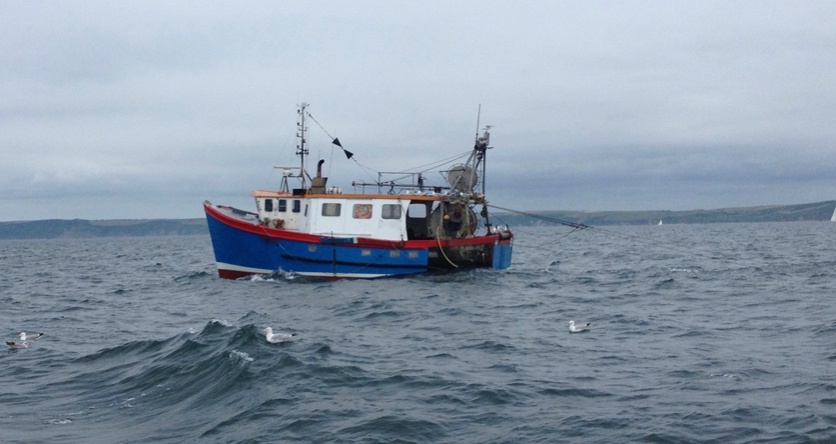
But less cod as global warming rises
The mix of fish off the south-west coast is changing as global warming affects sea temperatures, according to new research from a group including Exeter University and the Met Office. It's going to have implications on the British diet, with consumers eating more red mullet, Dover sole, john dory and squid - species that are expensive at the moment.
The report explores how rapidly warming sea will change the catchability of commercially important Atlantic fish species. It says the Celtic Sea, English Channel and southern North Sea have experienced significant warming over the past 40 years and further increases are expected over the coming decades.
Species that thrive in warm waters - red mullet, Dover sole, John dory and lemon sole - are expected to increase, but cold-adapted species like Atlantic cod, monkfish and megrim will fall.
The way fishing is managed may have to change to help declining species. The survey has implications for the wider ecosystem, such as predator prey dynamics.
The study involved researchers from the University of Exeter, the University of Bristol, the Centre for Environment, Fisheries and Aquaculture Science (Cefas) and the Met Office Hadley Centre. They used computer models to look at how fish abundances may alter by 2090 under a range of future climates. This provided opportunities to not only understand future trends, but how these trends might differ depending on the amount of warming in these seas.
Lead author Dr Katherine Maltby, who undertook the research while at Cefas, said: “Our results show that climate change will continue to affect fish stocks within this sea region into the future, presenting both potential risks but some opportunities that fishers will likely have to adapt to. Consumers can help fishers take advantage of these fishing opportunities by seeking out other fish species to eat and enjoy.”
Co-author Louise Rutterford, from University of Exeter, said: “We know from working with fishers that warmer water species are appearing in catches more. Bringing together their ‘on-the-ground’ experiences with studies like ours will help inform future management decisions that enable sustainable exploitation while supporting fishers’ adaptation.”
The paper, entitled ‘Projected impacts of warming seas on commercially fished species at a biogeographic boundary of the European continental shelf’ was published in the Journal of Applied Ecology.
 Work begins on project to rebuild fire-hit Exeter landmark
Work begins on project to rebuild fire-hit Exeter landmark
 Car crashes through wall near Exeter Cathedral
Car crashes through wall near Exeter Cathedral
 Plymouth community group scoops national award
Plymouth community group scoops national award
 Naming streets after famous people could be over in parts of Devon
Naming streets after famous people could be over in parts of Devon
 Devon man jailed for escaping lawful custody
Devon man jailed for escaping lawful custody
